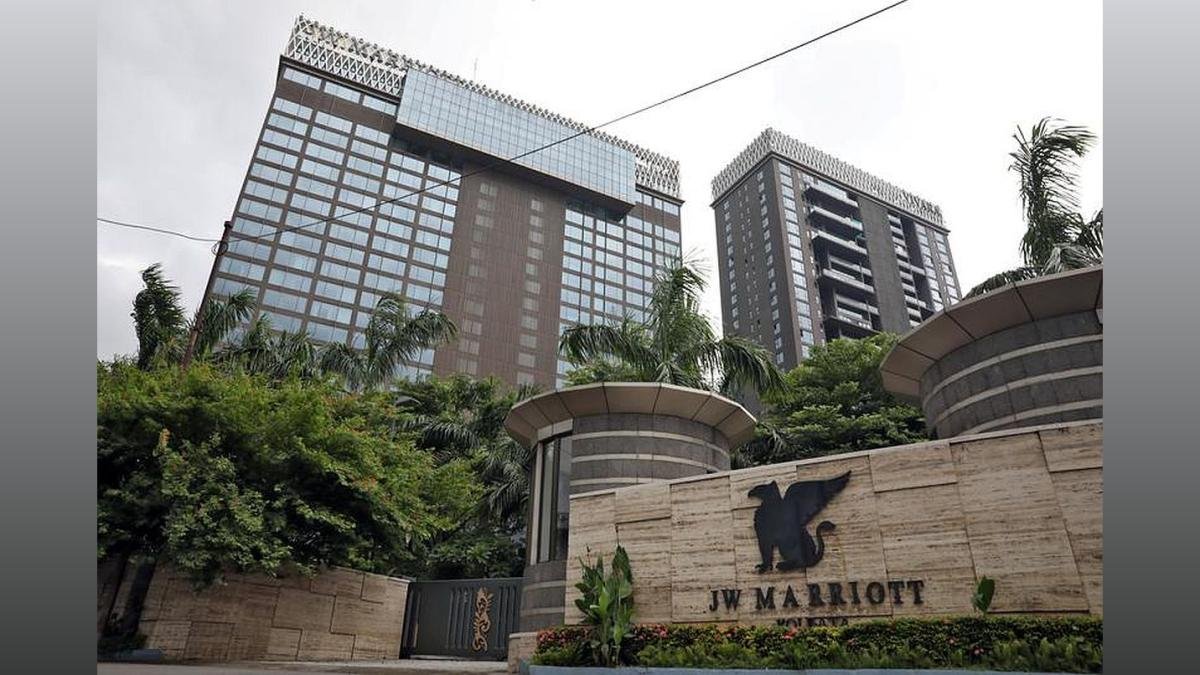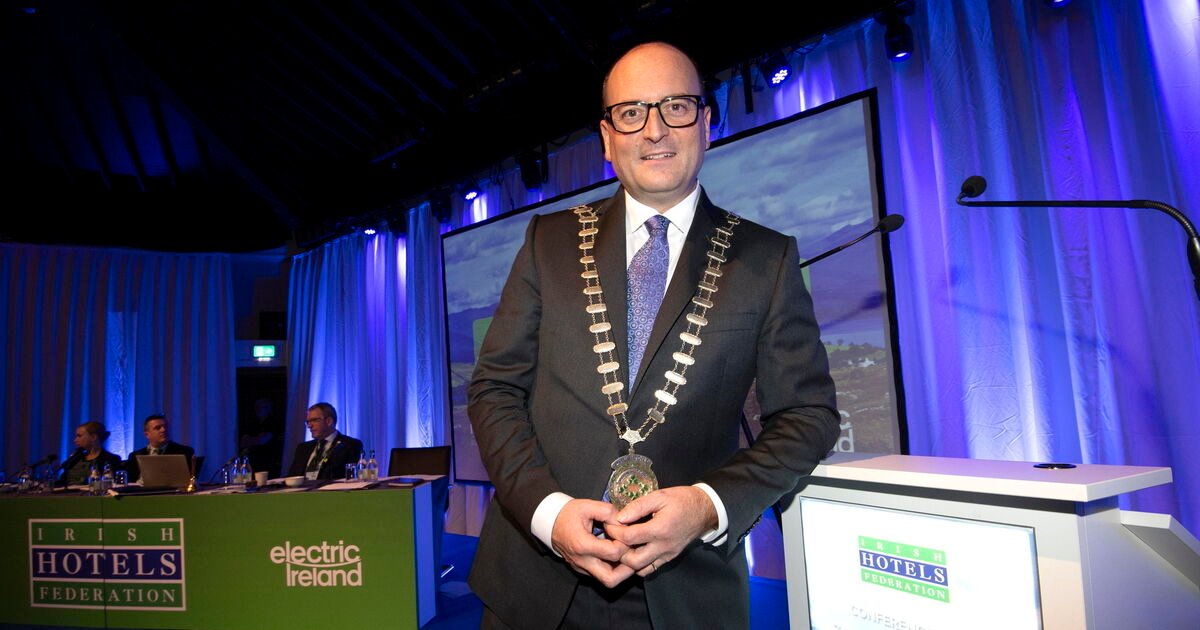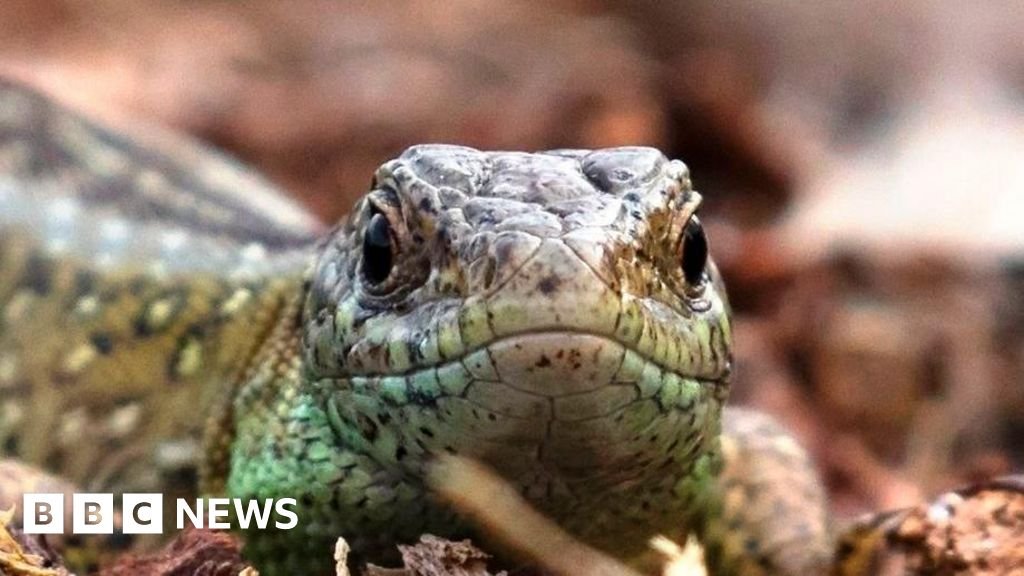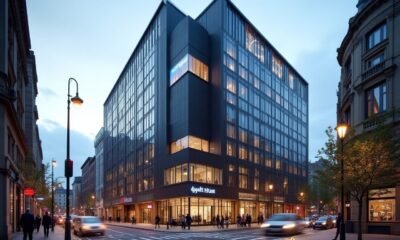Hotels & Accommodations
Angry Scenes Erupt Outside Asylum Hotel in the UK: What It Means for Tourism and Economic Growth

Sunday, July 27, 2025
Outside a UK asylum hotel, a recent scene of angry protests saw inflammatory shouts of “Back in your rubber dinghies!” It’s symptomatic of increasing friction over asylum-seekers and the presence of them in some areas of the country. Many of the protesters say asylum seekers are being provided with housing that should be going to British citizens, and there is growing resentment at the government’s response to immigration, not just the scale of it. Though significant in its own right, this issue is also illustrative of a larger challenge facing both the tourism industry, as well as the broader dilemma the UK faces when attempting to square humanitarian interests with economic ones.
A Rising Tension: Refugees and Sound Bite Society
The incident outside the asylum hotel is the latest flashpoint in a wider debate about the accommodation of asylum seekers in the UK, especially in hotels, which have become more common for housing refugees arriving by boat or by other routes. The situation has brought acute pressure to bear on communities hosting asylum seekers, many of which claim the measures are stretching local resources and services to breaking point. As emotional temperatures rise, protests like the one outside the hotel are happening more often, reinforcing the narrative that immigration is an issue splitting the nation apart.
But as much as the protest was a show of frustration, it also betrays a growing divide over how Britain should conduct its asylum policies. At the same time, however, some people are demanding the government do more to look out for citizens in the country, especially in low-income communities where people are asking for housing, health care, access to education. The increasing divide between these two statements of intent is reportedly already affecting local communities but also the UK’s wider tourism industry, and the country at large, which up until now has projected an image of stability and open-mindedness around the world.
The Effect on Tourism: A Broken Image of the UK
Growing anti-immigrant feelings and protests by some against asylum seekers could have a negative influence on the UK tourism sector. One of the UK’s largest industries, tourism brings in billions of pounds each year. But with public debate about immigration intensifying, the UK’s reputation as an open and safe place for tourists to visit could be damaged, Hammond conceded.
The UK, known for his cultural melting pot, old-world landmarks, and bustling cities. People from abroad travel to the UK to witness its incredible history, its famous landmarks and its diverse culture. But where strained relations over immigration and asylum policies are the concern, potential overseas visitors might think again before travelling to the UK. Tourists typically look for places that are safe, stable and open, and if the UK has a bad reputation for how it treats asylum seekers, that could deter visitors from abroad.
And not only, there is also a risk that the surge in protests and increasingly hostile media coverage on immigration could make people in countries who feel targeted or unwelcome turn away from tourism in Britain. For example, someone from the country with higher refugee numbers such as Syria, Afghans or parts of Africa, they may not want to visit the UK if the country appears to have tough immigration laws. This change of perception can have an enormous influence on the inflow of tourists to the UK at a time when the country is reeling from the economic consequences of the coronavirus pandemic.
Economic Consequences: Advertising of Tourism Growth vs. Stress on Local Resources
The protests also reflect the pressure asylum seekers are putting on local resources, such as housing, healthcare and social services. The use of hotels to accommodate asylum seekers has sparked simmering frustration in some communities, where residents believe such facilities are being stretched thin. Hotel rooms for asylum seekers are also in some cases considered to occupy space that a tourist could use, especially at times of discontent.
And for the tourism industry, it is both a blessing and a curse. “It puts a squeeze on the availability, and now on one level you have the hospitality industry that needs heads in beds, and that’s what asylum seekers are doing. But the additional pressure on local services such as transport and facilities might also spoil the service that visitors receive. This might discourage people to travel to regions that have been heavily affected by the asylum accommodation measures. If strikes and local services start to appear overwhelmed, tourists in the planning stages might decide to consider other destinations that are either less controversial or more stable.
Apart from the immediate damage to the tourism sector, the wider economic repercussions of these demonstrations are immense. Tourism is vital to the UK economy, providing hundreds of thousands of jobs and bringing wealth to rural and urban communities. Any decline in tourism — be it through falling numbers of visitors or less spending once they arrive — could have lasting effects on local businesses, especially those in hospitality, retail and entertainment.
Role of government in managing the balance between humanitarian mission and the economic growth
The UK government is treading a fine line as it tries to balance the increasing demand for accommodation for asylum seekers while preserving its tourism sector to appeal to international visitors. The government will have to balance its obligation to provide humanitarian aid to asylum seekers with concerns of local communities that they are already taxed to capacity.
In response, the government has been putting money into attempts to relieve the pressure on local services and to provide better accommodation for asylum seekers. For instance, the government has been looking at unconventional forms of housing, such as modular housing or converted office buildings, to help ease the load on conventional hotel accommodations.
While at the same time, government must continue to engage with the YK tourism industry to ensure the UK continues to be an attractive destination for international visitors. This also involves maintaining a streamlined visa regime, public safety and the continued revitalization of the tourism infrastructure. Any change of attitude, not least in asylum policy, could be bad for the UK’s international reputation for hospitality.
Community engagement and strategic marketing job to be done
So as to minimize protest damage on tourism, the authorities and tourism officials need to communicate with local residents and alert them about the value of being an image friendly series of events. Strategic marketing profiling the UK’s cultural diversity, welcoming nature and heritage can play an important role in challenging any negative perceptions and ensuring ‘brand UK’ continues to send out the message that it is a safe and welcoming place to visit.
Tourism officials can also establish partnerships with local businesses to ensure visitors still have a positive time in spite of the political hoo-ha about asylum seekers. For example, better conveying to tourists about what they can and cannot visit, plus hot to move around protest ridden areas would remove some of the anxiety and make travel easier.
Conclusion: A Delicate Balance on the UK’s Tourism Future
Protests outside asylum hotels While protests continue outside asylum hotels, the broader context of immigration and resource allocation are being called into question across the UK. While these protests point to growing tensions in the politcal climate here, they also underscore the struggles of the country’s tourism industry. The dilemma between offering humanitarian aid to asylum seekers and sustaining the image of a holiday destination was one the UK government could not escape, the MP added.
Given that tourism is such an important part of the UK economy, it’s also imperative that the government acts to reduce the potential damage of negative perceptions resulting from the current asylum debate. By further investing in the tourism industry, strategically marketing and communicating with its citizens, the UK can minimize the risk of these protests and keep its competitive position as a global tourism player.
Hotels & Accommodations
Luxury Hotel Opening at Resort World Sentosa: Rediff Moneynews

Resort World Sentosa partners with Marriott to open The Laurus, a luxury hotel at Sentosa Island, Singapore, offering suites, dining, and spa.
The 183 all-suite hotel, ‘The Laurus’ — named after laurel leaves historically used to crown victors and honour achievements — will open by the end of the year.
“Our landmark collaboration with Marriott International to bring the very first The Luxury Collection branded property to Singapore further exemplifies our commitment to redefine luxury guest experiences. The Laurus, a luxury collection resort, embodies the very essence of our ongoing pivot to offer curated destination experiences as part of RWS’ transformational expansion plans,” Tan Hee Teck, Chief Executive Officer, RWS, said.
He said the new hotel will offer guests experience the Singapore’s rich heritage, the captivating beauty of Sentosa’s flora and fauna while experiencing RWS’ hallmark hospitality.
“The Laurus at RWS stands as a shining beacon, heralding a new era of exceptional luxury and hospitality, further cementing RWS’ esteemed status as Asia’s premium lifestyle destination resort,” he said.
According to Marriott International the tie-up is a milestone which reflects its commitment to the evolving luxury landscape of the island city.
“Drawing inspiration from Singapore’s storied past and rich cultural heritage, The Laurus, a Luxury Collection Resort, will celebrate the essence of the city, and we look forward to welcoming global explorers and collectors to experience Singapore’s captivating charm through the lens of our brand,” said Rajeev Menon, President, Asia Pacific excluding China, Marriott International.
The Laurus offers suites as well as courtyard spaces and a function room spanning across five floors, the company said, adding that the hotel will have a bar, a landscaped outdoor swimming pool and spa and all-day-dining concept restaurant.
Spanning 49 hectares, the hotel is home to world-class attractions like the Universal Studios Singapore, S.E.A. Aquarium, Dolphin Island and Adventure Cove Waterpark, it said.
Complementing the adventure and adrenaline of its theme parks and attractions are six unique luxury hotels, the premier Resorts World Convention Centre, and a casino.
The integrated resort also offers world-class entertainment from star-studded concerts to immersive exhibitions.
RWS is the first integrated resort to be inducted into the TTG Travel Hall of Fame in 2023 after being named “Best Integrated Resort” for 10 consecutive years at the TTG Travel Awards, which recognises the best of Asia-Pacific’s travel industry.
Hotels & Accommodations
Cork-based hotels president welcomes plans to cut vat rate

The Cork-based President of the Irish Hotels Federation has outlined that plans to cut Vat for the hospitality sector would be an important step to support the industry.
The comments from Michael Magner, who also owns the Vienna Woods Hotel in Cork, come following on from an interview on RTÉ Radio 1 with Minister for Enterprise, Tourism and Employment Peter Burke who defended government plans to cut Vat for the hospitality sector.
The current Programme for Government contains a commitment to reduce the Vat rate in the hospitality sector from 13.5% to 9%.
Speaking to , Mr Magner said the proposal would assist vulnerable food led businesses that have faced an uncertain future and rising cost challenges in recent years.
“The commitment from the Minister to stand over the commitment that is in the programme for government towards the reduction of the Vat rate to 9% is welcome.
“It is needed on the basis of the food sector. The cut in Vat hospitality is for food businesses. Therefore it doesn’t apply to hotel accommodation as is our understanding.
“The current government has been formed since the start of this year. With that, we see tourism and hospitality being moved into the Department of Enterprise, Trade and Employment.
“We now have a Minister in Peter Burke, who is really supportive of our industry and understands the complexities of the sector.
Mr Magner added that with the right policies and a positive businesses environment, he believes tourism and hospitality can have a positive future ahead.
“The isn’t a case of whereby businesses are trying to profiteer or return what could be seen as super normal profits.
“This is actually about ensuring businesses have a chance of survival and that is what it comes down to.”
Hotels & Accommodations
Blackpool hotel reptile market plan in animal rights row

A row has broken out over plans to host a reptile market at a Blackpool hotel this summer.
The event at the Norbreck Castle will see people “buy and sell their surplus animals and offspring”, according to the International Herpetological Society (IHS).
But some animal charities have condemned the market as a “gross violation” of reptile welfare and have urged Britannia Hotels to cancel it.
Blackpool Council said its officers would be at the event to make sure it complied with standards, while the IHS said its markets were “fully compliant with UK law”.
The IHS, which was founded in 1969, said it was “committed to the ongoing research and propagation of all reptile, amphibian and chelonian species”.
It added “animal care is paramount” at its events and creatures were “transported and displayed in temporary containers for the animals’ safety during the event only”.
The soceity added that two veterinary professionals were “always present and any concerns are taken extremely seriously”.
Plans for a similar market in Doncaster in 2022 were halted by the town’s council after complaints from some animal charities.
Event controversy
Elaine Toland, director of the Animal Protection Agency, said it “strongly urges Britannia Hotels to cancel this event and refuse to be complicit”.
Laura Walton, campaigns manager at Freedom for Animals, added it “sincerely hoped” the hotel chose not to let the event go ahead.
Charlotte Regan, wildlife campaigns manager at World Animal Protection, said the animals were “not products to be bought and sold at makeshift stalls”.
“These kinds of events are outdated and have no place in modern society.”
The IHS said it found it “deeply upsetting to be constantly under fire” and none of its previous events had been “cancelled, refused or changed venues due to welfare issues or legal contravention by the IHS”.
It said the events had instead been called off because of “adverse publicity”.
Britannia Hotels has been approached for comment.
-

 Brand Stories6 days ago
Brand Stories6 days agoBloom Hotels: A Modern Vision of Hospitality Redefining Travel
-

 Brand Stories1 day ago
Brand Stories1 day agoCheQin.ai sets a new standard for hotel booking with its AI capabilities: empowering travellers to bargain, choose the best, and book with clarity.
-

 Destinations & Things To Do7 days ago
Destinations & Things To Do7 days agoUntouched Destinations: Stunning Hidden Gems You Must Visit
-

 AI in Travel7 days ago
AI in Travel7 days agoAI Travel Revolution: Must-Have Guide to the Best Experience
-

 Brand Stories3 weeks ago
Brand Stories3 weeks agoVoice AI Startup ElevenLabs Plans to Add Hubs Around the World
-

 Brand Stories2 weeks ago
Brand Stories2 weeks agoHow Elon Musk’s rogue Grok chatbot became a cautionary AI tale
-

 Destinations & Things To Do1 day ago
Destinations & Things To Do1 day agoThis Hidden Beach in India Glows at Night-But Only in One Secret Season
-

 Asia Travel Pulse3 weeks ago
Asia Travel Pulse3 weeks agoLooking For Adventure In Asia? Here Are 7 Epic Destinations You Need To Experience At Least Once – Zee News
-

 AI in Travel3 weeks ago
AI in Travel3 weeks ago‘Will AI take my job?’ A trip to a Beijing fortune-telling bar to see what lies ahead | China
-

 Brand Stories3 weeks ago
Brand Stories3 weeks agoChatGPT — the last of the great romantics













You must be logged in to post a comment Login